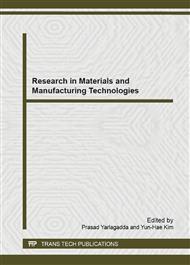p.1186
p.1190
p.1198
p.1205
p.1210
p.1214
p.1221
p.1225
p.1229
A Tracking Controller Design for Discrete Nonlinear Singularly Perturbed Systems Based on Fuzzy Singularly Perturbed Model
Abstract:
For a class of discrete nonlinear singularly perturbed systems, a tracking controller based on fuzzy singularly perturbed model (FSPM) and linear matrix inequality (LMI) approach is developed. Firstly, a series of dynamic TS fuzzy singularly perturbed subsystems are built to approximate a discrete nonlinear singularly perturbed system and a discrete reference model with the same fuzzy premise is chosen to design expected trajectory, then a kind of controller is developed to make the slow states of the closed-loop system follow those of the reference model. The linear feedback gain of the controller can be solved by the LMI approach. Discrete Lyapunov constitute techniques prove the stability of the closed-loop systems. The effectiveness of the approach is illustrated by the simulation experimentation.
Info:
Periodical:
Pages:
1210-1213
Citation:
Online since:
October 2013
Authors:
Price:
Сopyright:
© 2014 Trans Tech Publications Ltd. All Rights Reserved
Share:
Citation:


